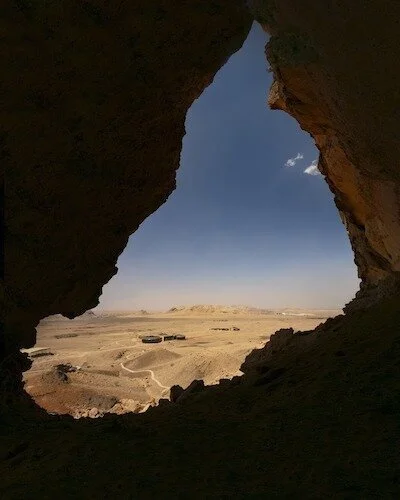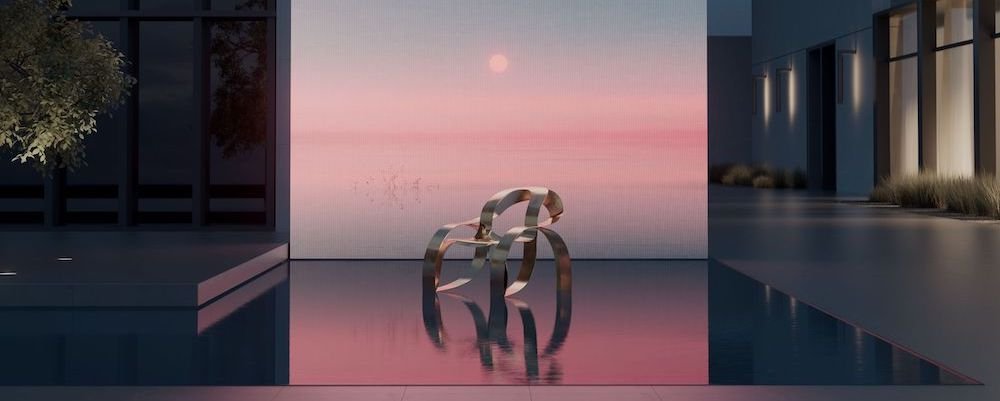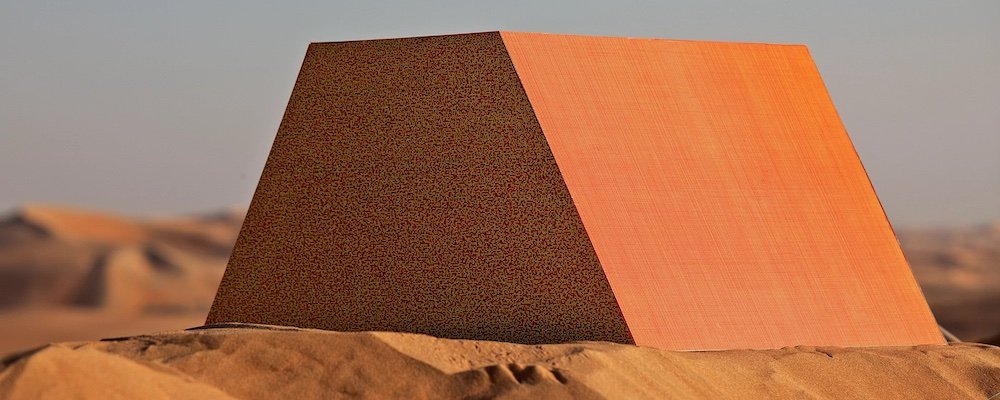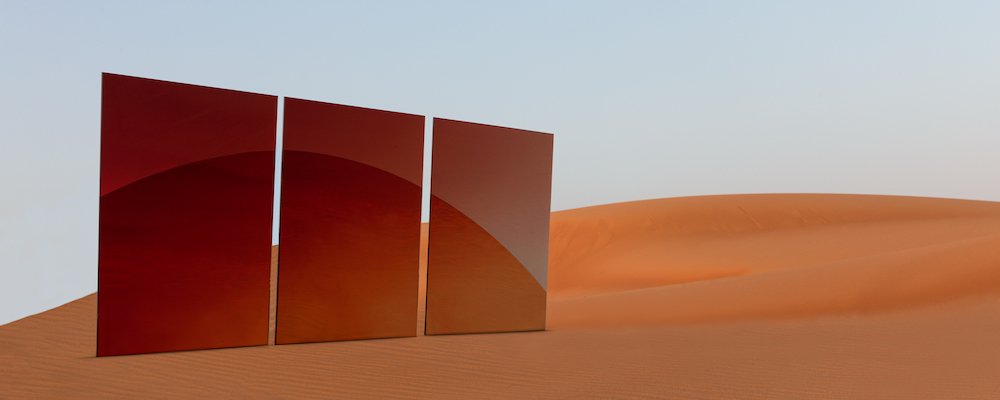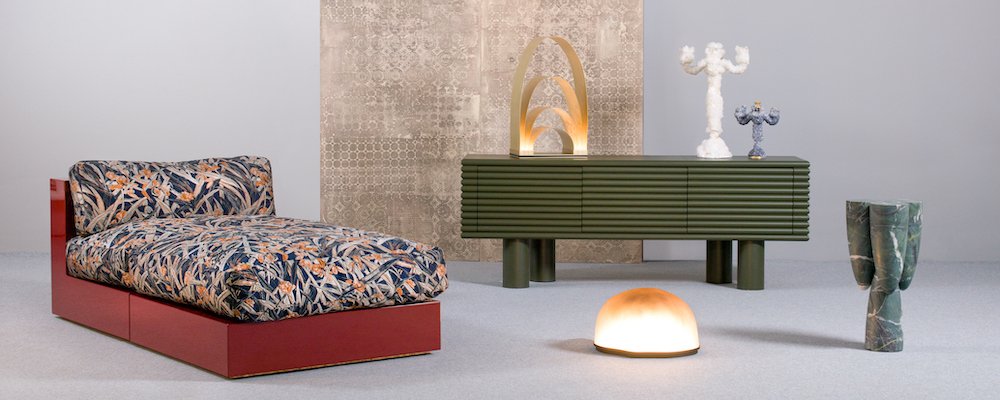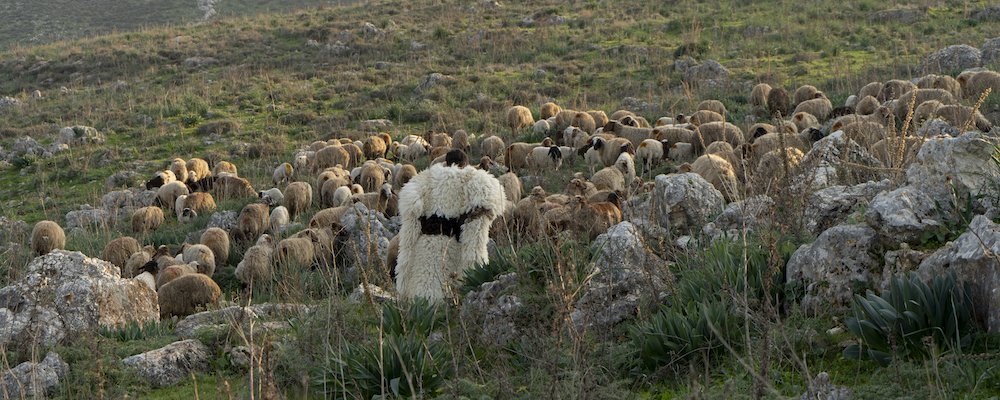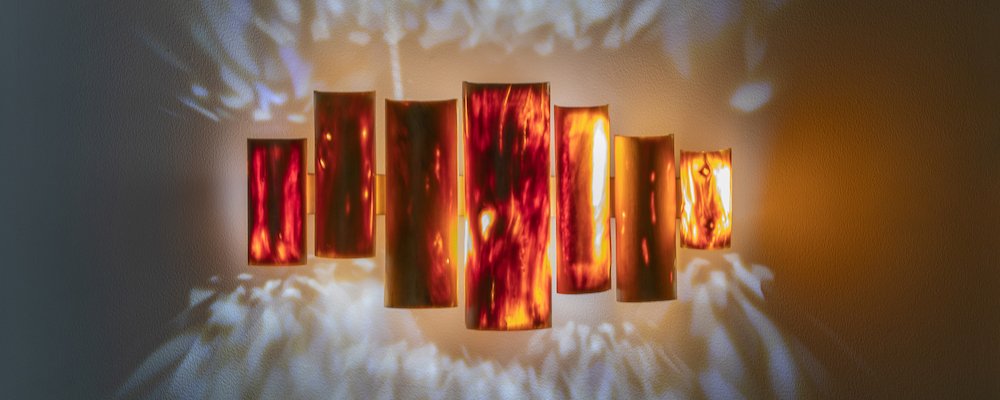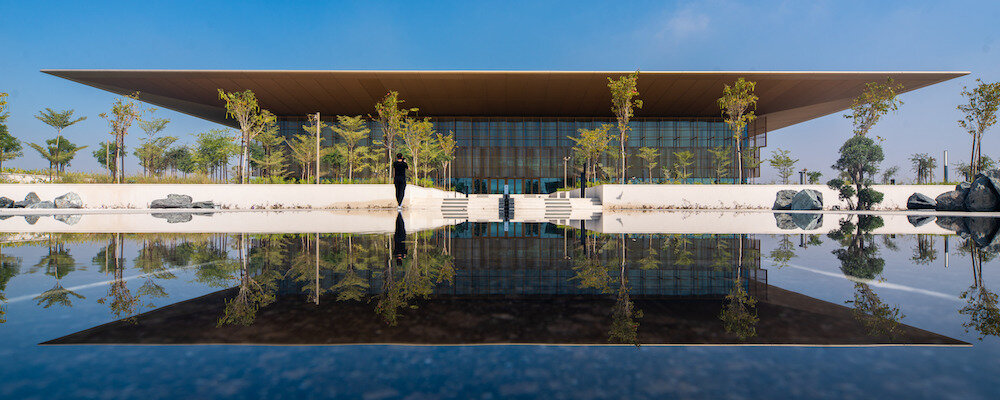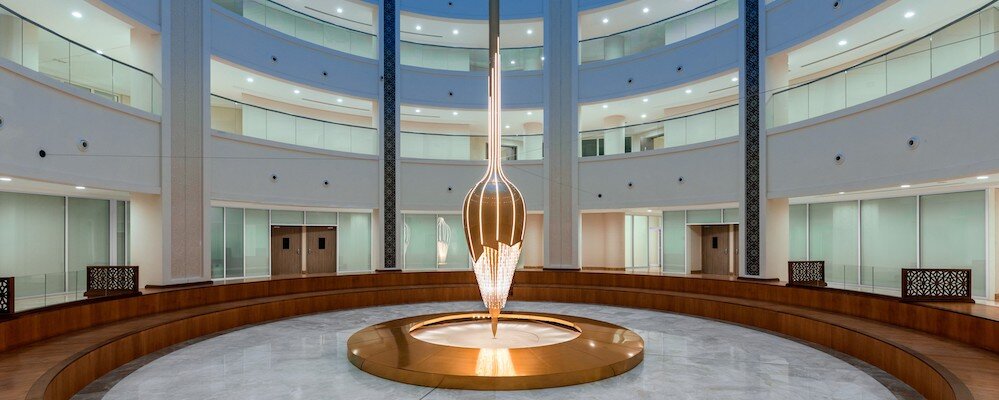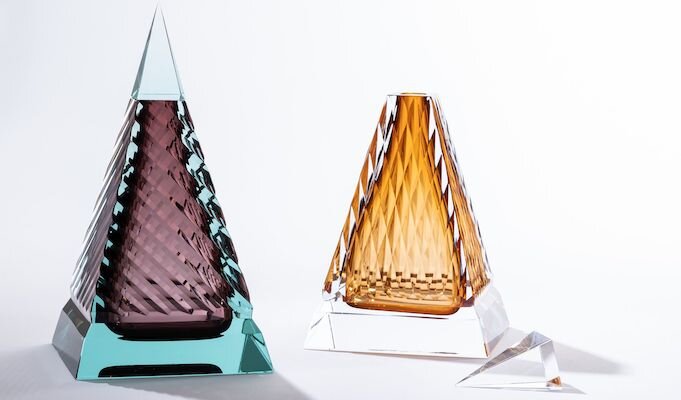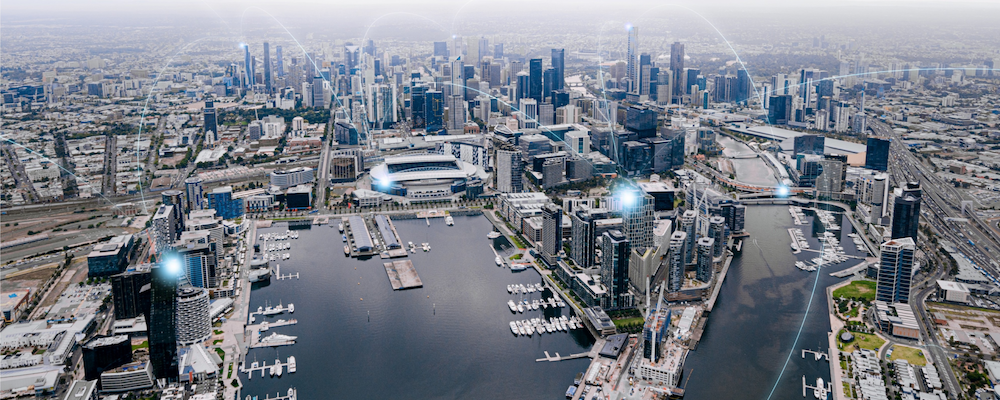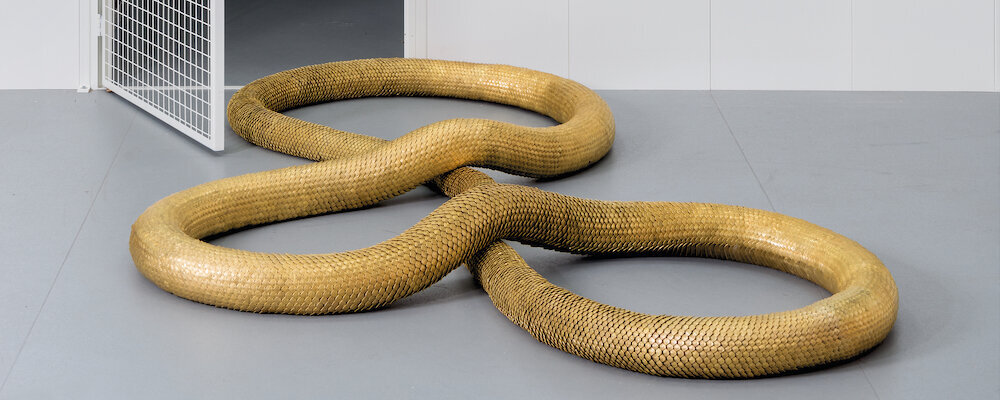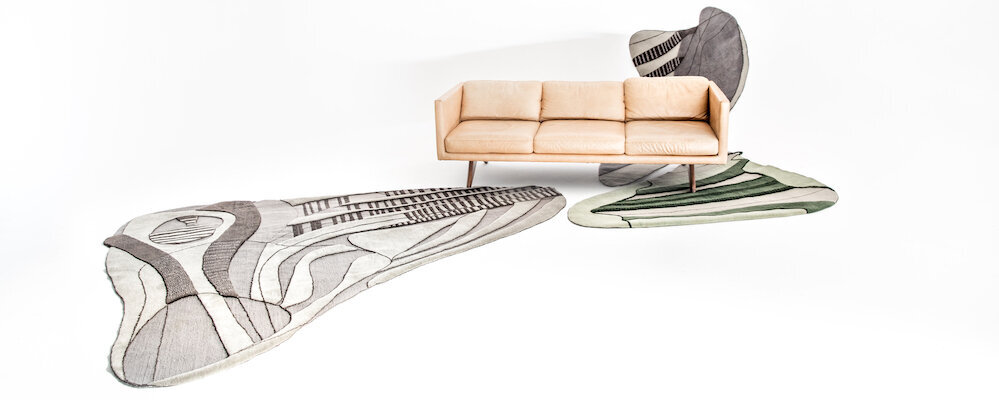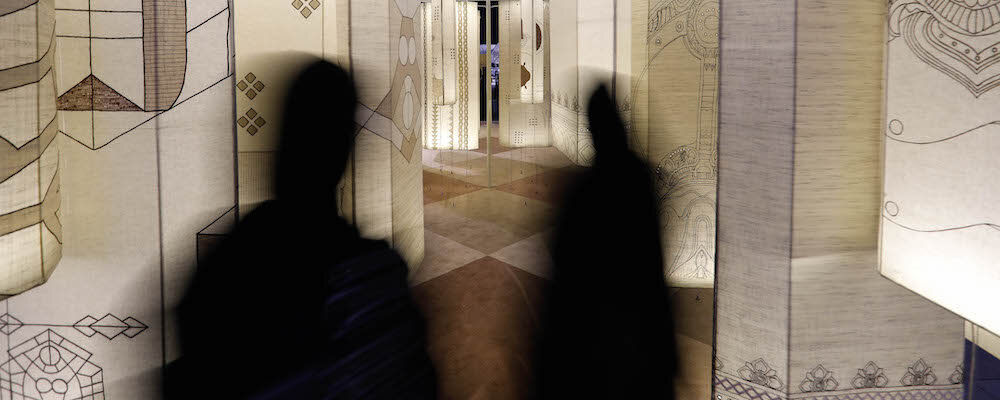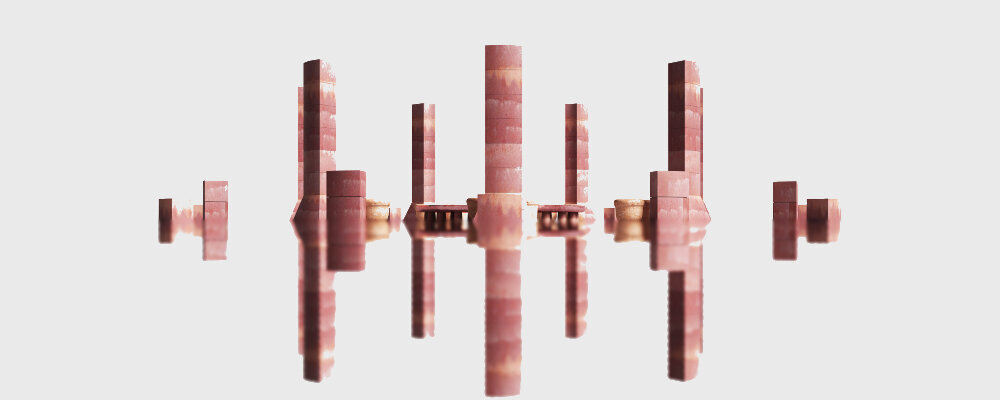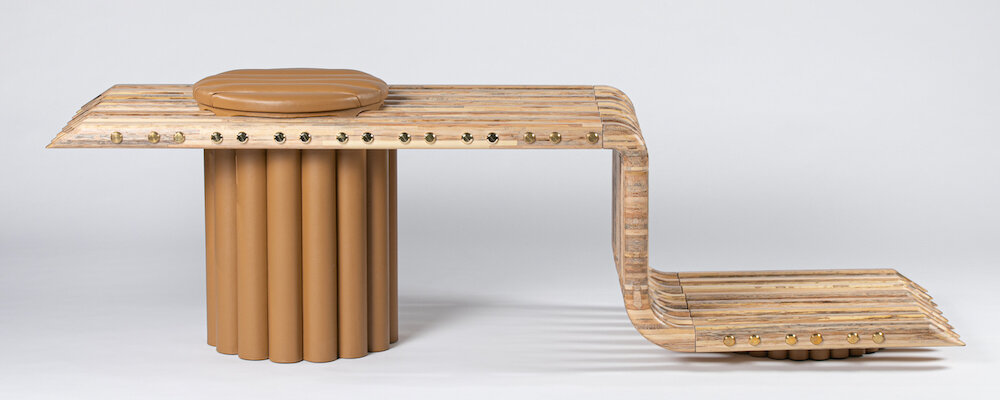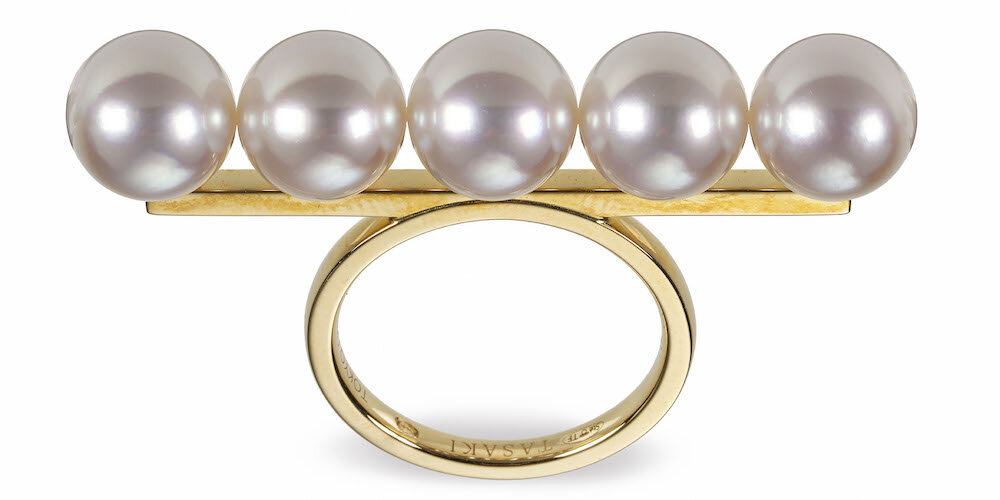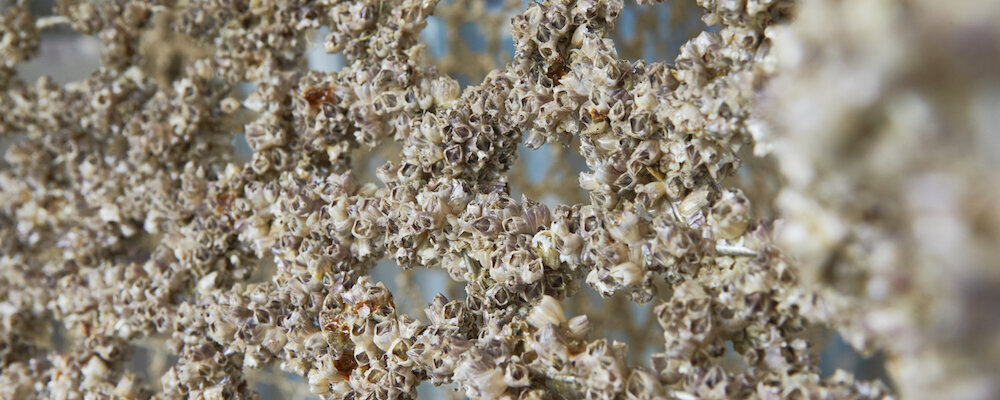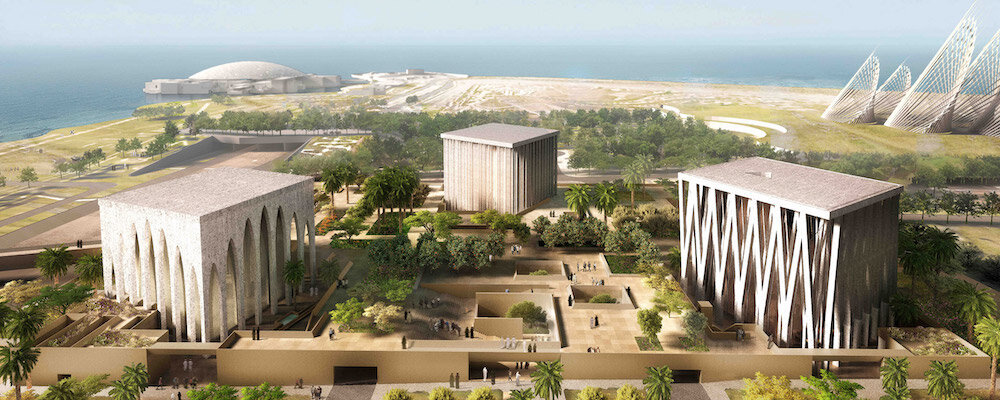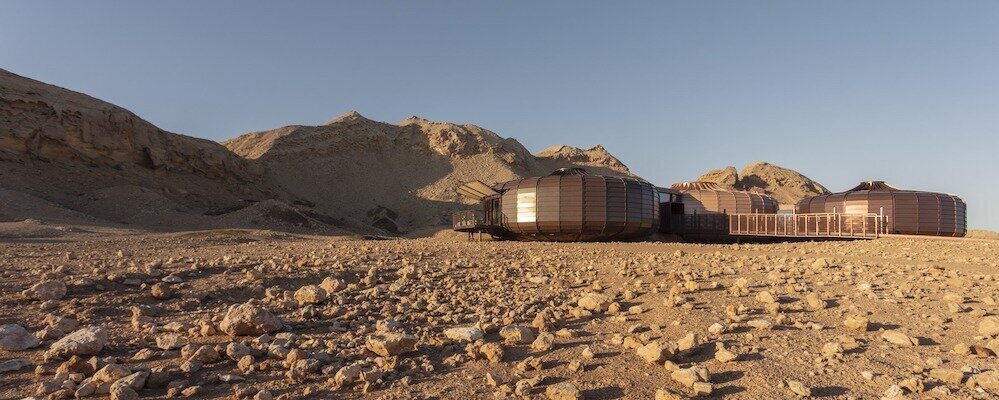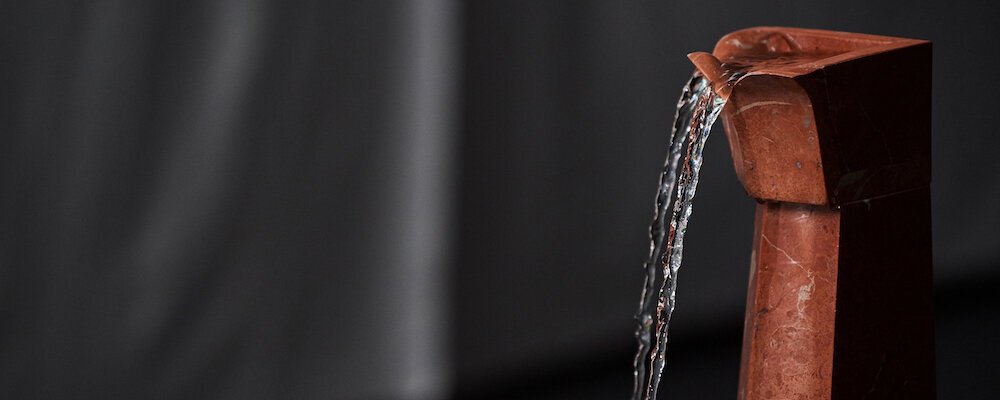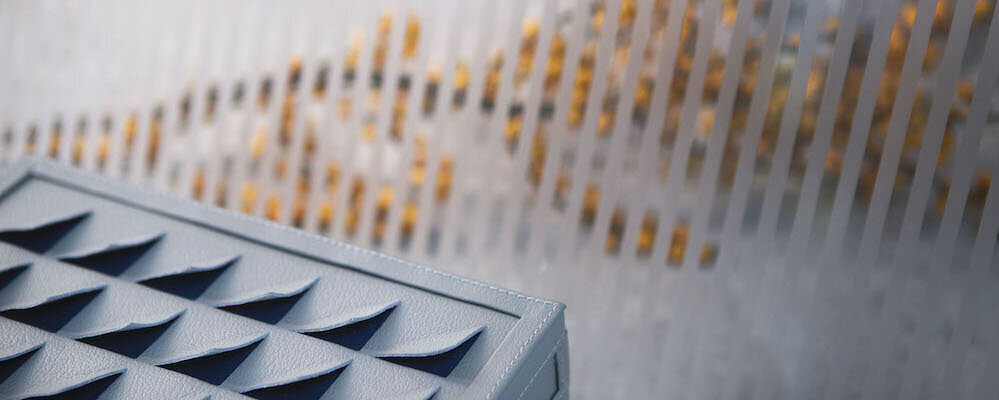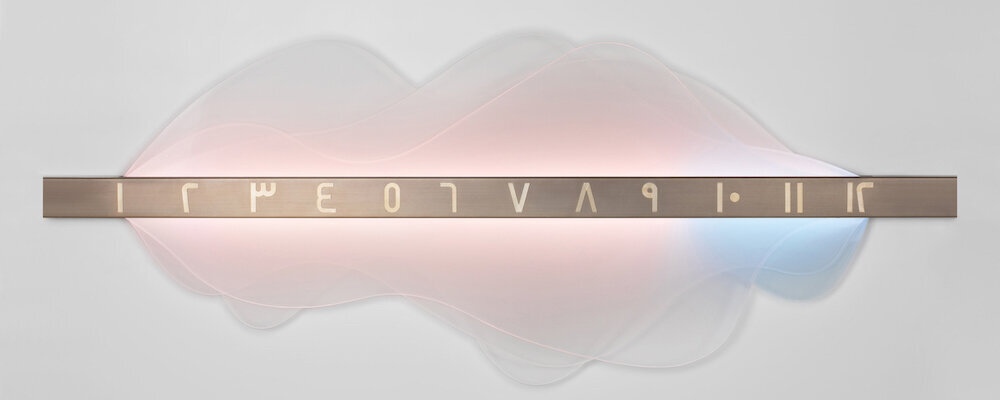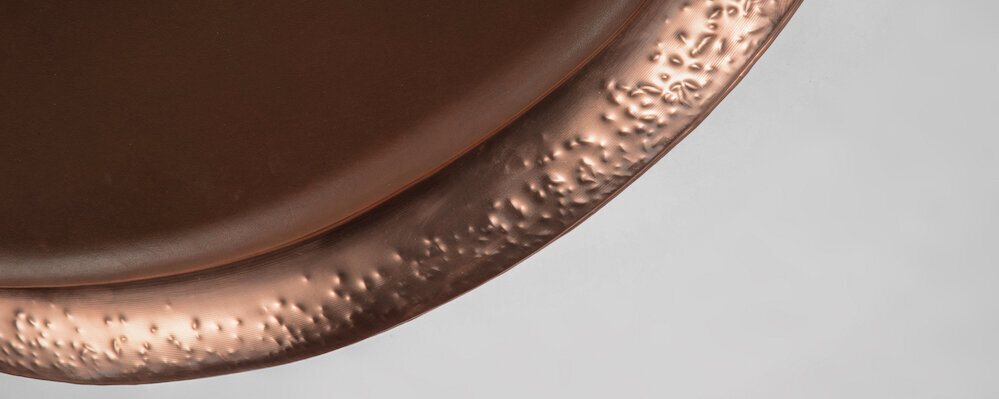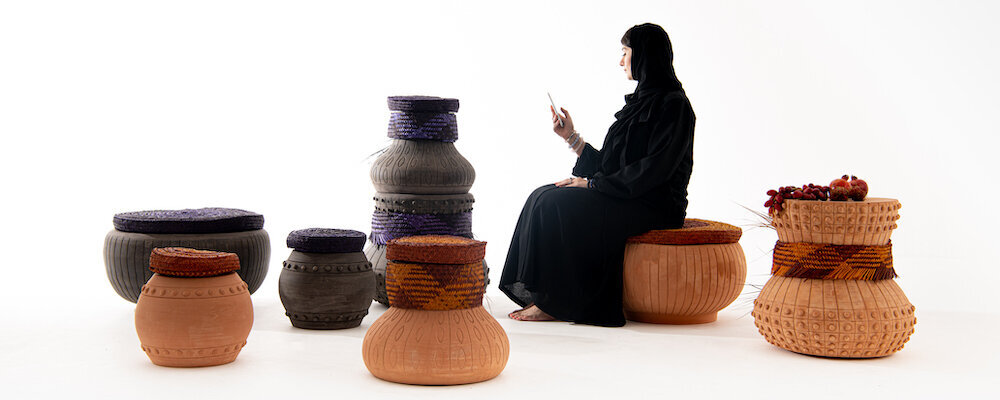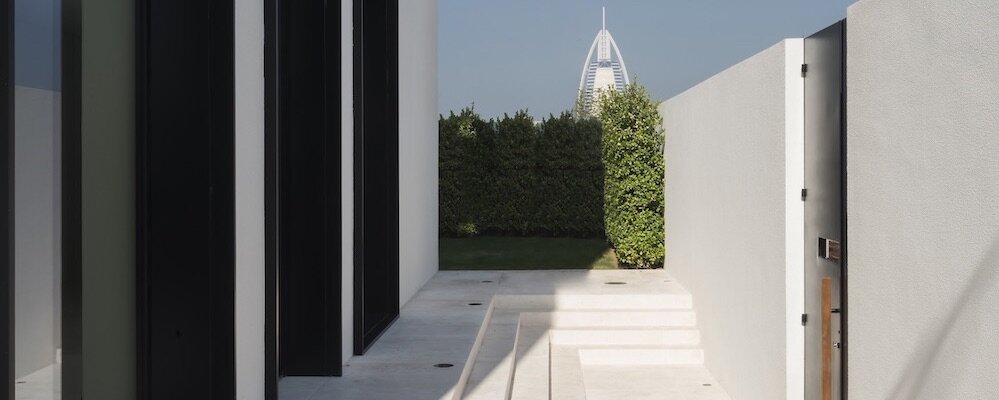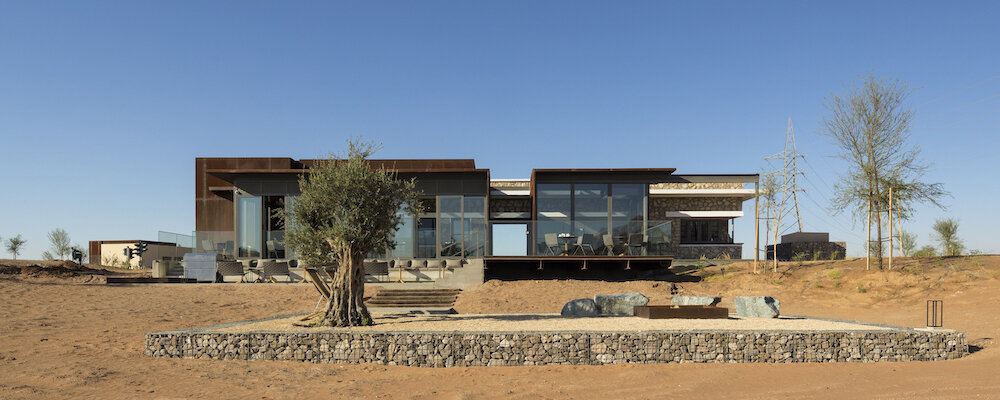The Buhais Geology Park Interpretive Centre
It is not the first mission on Mars; it is not another science fiction movie; it is real and it happens in the UAE, in the desert of the Emirate of Sharjah: the Buhais Geology Park Interpretive Centre.
About 50 km away from Sharjah, the Buhais Geology Park Interpretive Centre is at the foot of spectacular mountains rich of ancient burial sites from the Stone, Bronze and Iron Ages.
Recently His Highness Sheikh Dr. Sultan bin Muhammad Al Qasimi, Supreme Council Member and Ruler of Sharjah inaugurated the site in a region of exceptional prehistoric and geological significance. It features an abundance of marine fossils from over 65 million years ago.
The Centre was completed by Hopkins Architects, seeking to create a series of exhibition spaces which vividly present the region’s significant geological phenomena – including deep earth structures, plate tectonics, geomorphology and sedimentation.
The practice has designed five interconnected pods of varying sizes. These accommodate exhibition areas, an immersive theatre, a café offering panoramic views of the dramatic Jebel Buhais ridge raising some 100 metres above, a gift shop and other visitor facilities.
The geometry of the pods was inspired by the fossilised urchins present on-site and developed into a typology, which could be sized to suit the Centre’s different functions. To minimise disruption to the existing fauna, geology and terrain, the pods were designed as prefabricated concrete structures and only lightly touch the ground on in-situ reinforced concrete foundation discs. A sixth, unconnected pod is used as a service building.
The pods are clad in steel panels, coloured to reference the different hues of the surrounding landscape as well as to shade the precast concrete structures. These panels are fixed into an array of steel ribs, giving the pods their distinctive sculptural, cantilevered forms and further referencing the exoskeleton of the urchin fossils.
Visitors enter the building along an elegant ramp to the central hub where once inside, they are greeted and guided through the Centre. The restrained palette of the interior materials complements the pods’ exposed pre-cast concrete shell segments. In some pods, glazing and oculi have been inserted to control natural light into space, tempering the brightness of the desert sun.
Linking the pods and looping sinuously around the site is an outdoor trail accessed from the main exhibition area. This trail – designed to encourage visitors to explore the jebel (Arabic for mountain) – incorporates viewing areas, a classroom shaded by a high-tensile canopy and raised walkways across natural rock formations and ancient burial grounds.
Using a series of model-based interactive displays, the Centre explores the region’s mountains, sand dunes and the Arabian Gulf as dramatic evidence of the area’s rich tectonic history over time – in particular, the disappearance of an earlier ocean and the creation of the limestone mountain ranges of Jebel Buhais. Visitors and researchers can actively examine local rocks and fossils.
The Geology Park is the latest addition to a suite of learning centres operated by Sharjah’s Environment Protected Areas Authority who lead conservation efforts in the Emirate, manage protected areas and provide exceptional educational experiences.
Pictures by Marc Goodwin.





